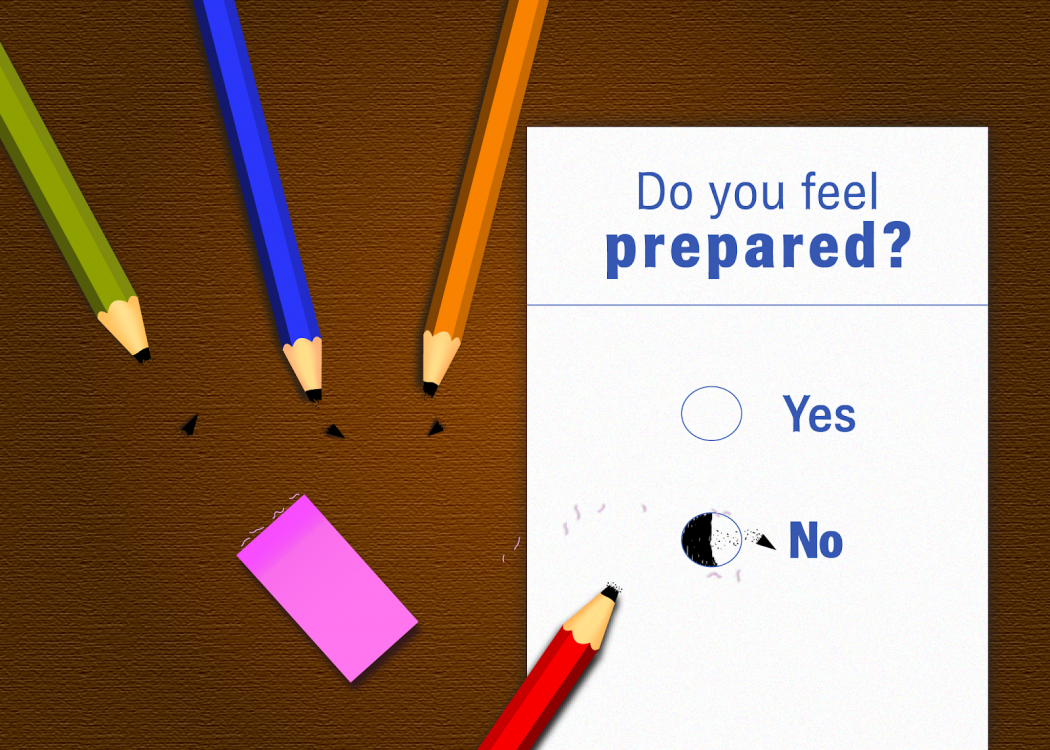Opinion: Multiple choice tests don’t prepare students
My professor once joked that students have no excuse to get multiple choice questions wrong because the correct answers are “right in front of them.” While this expression is clearly hyperbolic, it contains a semblance of truth.
A current mainstay of American educational testing is the multiple choice exam. From K-12 to the university system, students have been conditioned into an educational structure centered around this particular style of testing. While the multiple choice exam is an incredibly effective way to standardize an educational curriculum, the testing method falls short because it does a poor job of measuring real ability and preparing students for post-college life.
There are certainly advantages to the standardized testing format. Tests are easier to grade, results are available immediately, and there’s less subjectivity involved in grading. If convenience, however, takes precedence over delivering a quality academic experience, there is something fundamentally wrong with how we view education.
I will concede that there are some venues, such as introductory classes with hundreds of students, where anything other than multiple choice exams are simply not reasonable. Nonetheless, the purpose of this article is to analyze the exams from a conceptual framework, and to analyze whether they are effective in fulfilling their role.
There seem to be two competing philosophies about education. There are those that believe that education is valuable so far as it prepares a student for a career, and those that believe education is important to facilitate critical thinking and engage students intellectually. Whatever side of the debate someone may fall, multiple choice tests do not fulfill either of these criteria.
Students with high ability may find it easier to do well on multiple choice exams, but this is not to say that these tests actually test or measure a student’s ability. Correlation does not imply causation. They primarily test a student’s ability to memorize and regurgitate narrowly-selected information. This can be done without actually gaining competency in a subject through strategic studying. These are not the types of skills that will prove valuable in the workforce.
It is necessary in most occupations that require a college education that an employee grasps the foundational concepts and ideas of a subject well enough to apply them in fluid situations. An economic adviser would be absolutely terrible at his job if he could only regurgitate the textbook definitions of economic concepts. The workplace expects applied critical engagement, and our testing methods should reflect that.
If the purpose of education goes beyond mere occupational development, the argument against multiple choice tests is even stronger.
As mentioned earlier, multiple choice exams do not challenge students in an intellectually rigorous way. College should be a time to expand students’ worldviews and to strengthen their critical thinking and reasoning abilities. Teaching students that strict adherence to a standardized curriculum is the best approach to education completely undermines the framework of a liberal arts approach.
We ought to be preparing students for the workforce and helping them to grow as individuals. Developing tests that require real critical thinking and engagement will certainly help students in both these areas. Conversely, increasing the prevalence of multiple choice exams robs students of an opportunity for real education. I hope that we, as a university, can set an example with our educational standards and ensure that our tests are actually preparing our students for their future professional endeavors.
Featured image created by Cameron Matthews. The opinions in this article do not necessarily reflect his own.

